The information has been widely reported in the press but is still marked confidential.
At the discussion session on the draft Law on Protection of State Secrets (amended) and the Law on Cyber Security on the afternoon of November 7, delegate Nguyen Phuong Thuy, Vice Chairman of the National Assembly's Committee on Law and Justice , raised the question: "I would like to start with a number that no statistical agency can accurately answer: what is the total number of documents and papers currently stamped confidential?"
According to the delegate, the number of classified documents is so large and scattered that it is impossible to count. But it is certain that there are many classified documents that exceed the actual needs. It is this "excess of secrets" that is causing public damage to public administration, national transparency and the people's right to access information.
She cited the reality of inspection and supervision work: in some places, the practice of stamping confidential has become an "administrative reflex". Documents related to personnel work, documents in the drafting process, even content that has been publicly reported by the press, continue to be stamped confidential.
"There are cases where agencies close documents not to protect national interests, but to ensure the safety of the signer, to avoid questioning, to avoid explanation or to conceal violations," said the female delegate.

Delegate Nguyen Phuong Thuy, Vice Chairman of the National Assembly's Committee on Justice and Law (Photo: Media QH).
The result is a considerable burden on state management. Those assigned to store, print, transfer, and destroy documents must comply with a series of strict regulations, which takes a lot of time and effort.
She said that many times the National Assembly needed to use documents for public discussion but could not access them simply because the documents had not been declassified, even though the content "was not really secret".
"There are provisions in the law that require public discussion such as estimates and final accounts of the state budget, but the data provided to delegates is stamped confidential. This goes against the spirit of transparency and accountability in public service activities stated in Directive 53 of the Politburo ," said the Deputy Chairman of the National Assembly's Committee on Law and Justice.
Three main causes of "secret abuse"
Delegate Nguyen Phuong Thuy pointed out three core reasons for the prolonged widespread state of encryption.
Firstly, the legal provisions are still broad and not clear enough. Article 7 of the draft law stipulates that the scope of state secrets is "limited to important, undisclosed information that, if disclosed or lost, could harm national and ethnic interests."
"This is a core criterion, very correct in principle. However, when applying, many agencies tend to choose the option of closing the confidentiality, because there are no quantitative criteria, no specific instructions to distinguish which secrets need to be protected, which information needs to be made public, and to what extent it is considered potentially harmful," Ms. Thuy analyzed.
Second, there is a lack of sanctions for abusive behavior. Current law does not clearly stipulate the legal consequences for intentionally stamping confidential documents incorrectly or using confidential documents to conceal information and avoid explanation. When stamping confidential documents incorrectly is not handled, abusive behavior will continue to exist.
Third is the legal gap for internal circulation documents. Many agencies are using a soft administrative concept of "internal documents", but there are currently no legal regulations regulating this group of documents.
"Due to the lack of a legal framework, officials and civil servants are extremely hesitant and do not dare to provide information to relevant parties, do not dare to put data on digital platforms, do not dare to apply artificial intelligence to document analysis, fearing the risk of information leakage. It is this lack of clarity that has unintentionally become a barrier to digital transformation and administrative reform," she affirmed.
Encryption is easy, decryption is too difficult
The delegate emphasized another paradox: declassification is much more difficult than secrecy.
According to the draft law, to determine a document as a state secret, only the head of the agency needs to decide. The procedure is quick, the responsibilities are clear. But when declassifying, a Declassification Council must be established; there must be meetings, minutes, and records; there must be complicated and time-consuming procedures.
"It leads to a situation where secrets are sealed and left there, and no one wants to declassify them, even when there is no longer a reason to keep them secret," she said.
This creates difficulties in the legislative and supervisory activities of the National Assembly, because the agency using the document is always completely dependent on the decision of the issuing agency.

National Assembly discussion on the afternoon of November 7 (Photo: Media QH).
From the above analysis, delegate Nguyen Phuong Thuy proposed 5 major groups of solutions.
First, specify the scope of secrecy, only keep secrecy in cases of real necessity, with clear quantification criteria.
Second, add prohibited behavior: intentionally or abusing confidentiality to conceal information and avoid accountability.
Third, increase the responsibility of the head: the person who decides on the level of confidentiality must be responsible for any abuse.
Fourth, simplify the declassification procedure: only apply the Declassification Council to top secret documents, otherwise allow the issuing agency to declassify itself.
Fifth, issue a legal mechanism for internal circulation documents, to remove barriers to digital transformation and AI application.
"Protecting state secrets is an essential requirement to protect national interests, defense and security. But protecting state secrets does not mean closing it down, concealing it or turning it into a secret.
Source: https://dantri.com.vn/thoi-su/su-du-thua-bi-mat-can-tro-quyen-tiep-can-thong-tin-cua-nguoi-dan-20251107171735930.htm


![[Photo] Heavy damage after storm No. 13 in Song Cau ward, Dak Lak province](https://vphoto.vietnam.vn/thumb/1200x675/vietnam/resource/IMAGE/2025/11/08/1762574759594_img-0541-7441-jpg.webp)





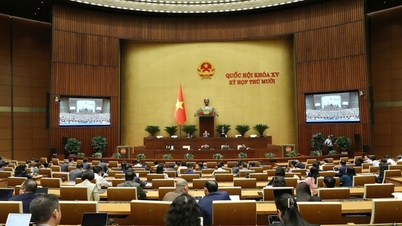

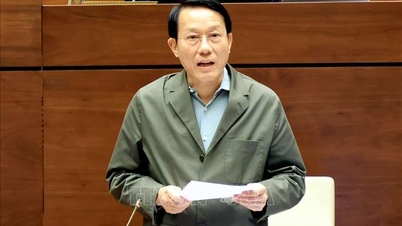

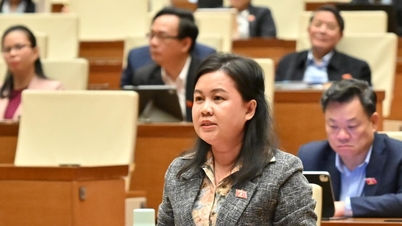




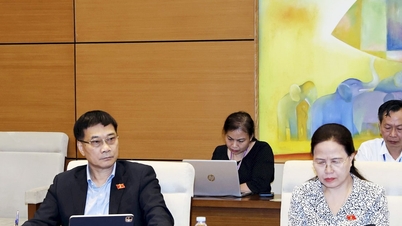


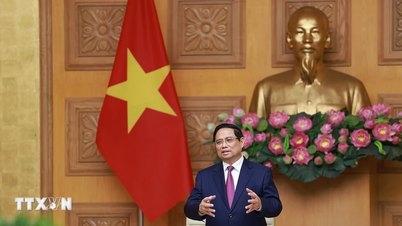


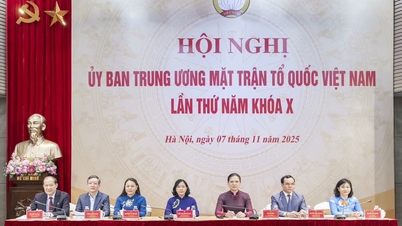







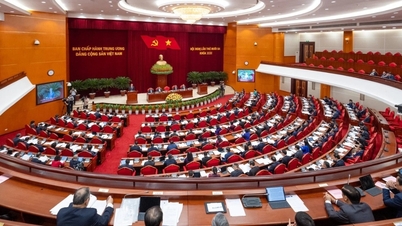






![[Video] Hue Monuments reopen to welcome visitors](https://vphoto.vietnam.vn/thumb/402x226/vietnam/resource/IMAGE/2025/11/05/1762301089171_dung01-05-43-09still013-jpg.webp)




































































Comment (0)